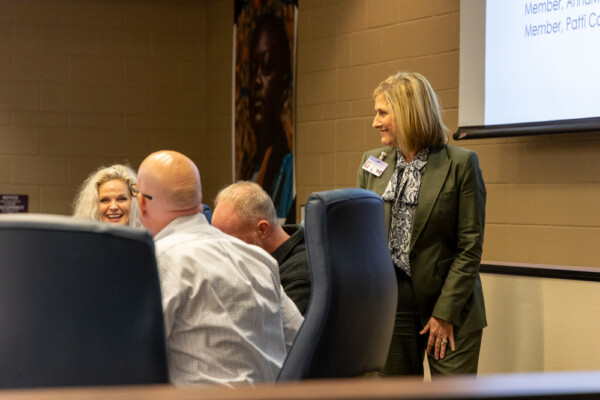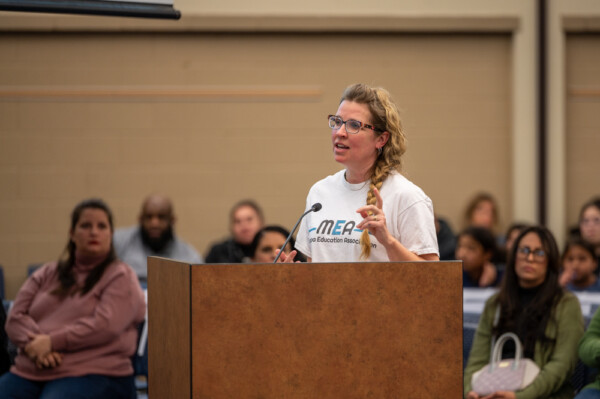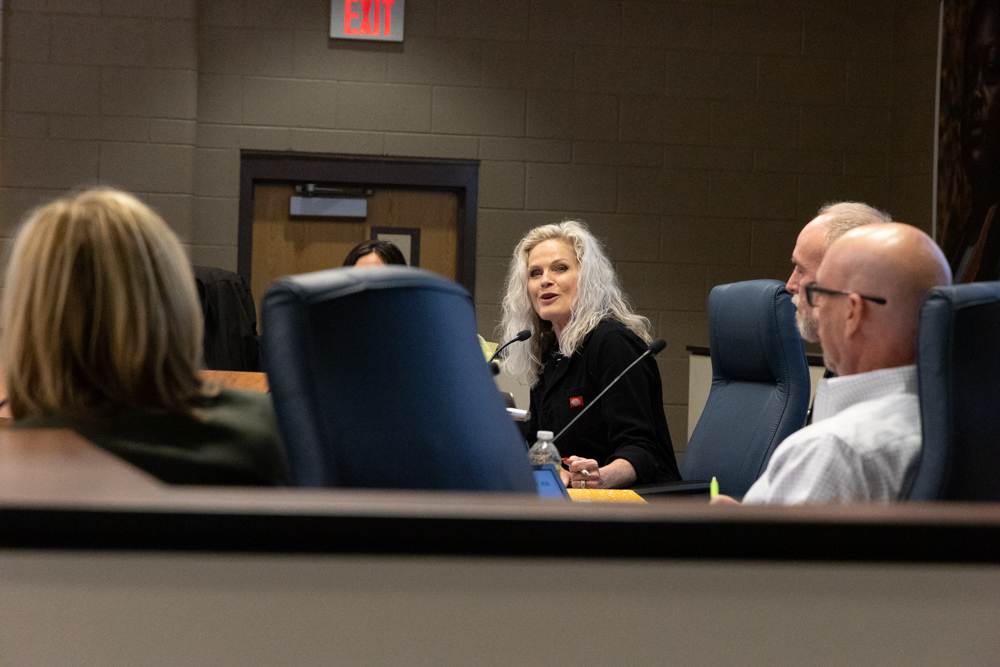Maricopa Unified School District Governing Board members discussed a plan to address classroom safety, student discipline and bullying in the classroom on Feb. 22 – and it likely won’t be their final discussion on the topic this school year.
Over the past couple of months, parents and teachers expressed their concerns to the board and demanded action. On the flip side, board members urge everyone to get involved – from students to administrative staff.
Among the problems identified are uneven interpretation and enforcement of district discipline policies.
“I think it would be good to have the student’s input on how they would like to implement (discipline policies),” board member Patti Coutré said. “Students know their peers better than I know them up here.”
Superintendent Tracey Lopeman, assistant superintendent of administrative services Tracey Pastor and two MUSD principals gave a work-study presentation detailing data and response to classroom behavioral issues district wide.

It was an initial study for future administration action, she said.
Throughout the district, more than 16% of K-12 students have had one or more discipline incidents in the past year.
Terra Gallagher, an educator with 15 years of experience, attributed some of this problem to large class sizes. She previously taught at Desert Wind Middle School, but quickly witnessed behavior problems first-hand.
“I was really excited to work with these kids,” Gallagher said.
“Then class sizes kept growing,” she added. “When you’re pushing 40 kids it’s a huge deal. It’s real hard to maintain classroom discipline.”
Darla Hyche, a single mom of seven, has attended school board meetings, spoken at board meetings during call-to-the-public and reached out to board members to address this issue head-on.
“I know they say, ‘Thank you for talking,’ but, I mean, something has to be done,” Hyche said.
Hyche is known for her colorful truck – decked out with autism-awareness stickers, paint and magnets. Her son attends Saddleback Elementary School and faces bullying on a regular basis, she said.
“He’s not wanting to be at school,” Hyche said. “(He’s) wanting to be alone, he’s ashamed.”
Ongoing bullying and behavioral issues go beyond the classroom, impacting student’s education and mental health, behavioral experts say.
According to the U.S. Centers for Disease Control and Prevention, 42% of high school students surveyed had persistent feelings of sadness or hopelessness in the last 30 days. In the same study, 22% seriously considered suicide and 29% experienced poor mental health.
Bridgette Woods, another parent at Saddleback, said her son has been made fun of, hit, smacked and scratched.
“I can barely get him to come to school,” Woods said. “He’s 7, he shouldn’t have to worry about this.”
Coutré empathizes with the students and believes that compassion and goodwill can go a long way toward improving the problem.
“I think we need to recognize when kids are having a bad day,” she said. “We need to recognize that, but we also need to show human kindness, a smile.”

In the meantime, she said, the district is moving in the right direction.
“I believe that people care deeply and want it to be better,” Martin said. “It’s important that we meet the challenge and come up with solutions.”
Moving forward, the board agreed to address these issues at least once a month, providing updates and hearing from the public.
“We need a common consensus,” board member Torri Anderson said. “If a policy is broken, a policy is broken, period.”
Anderson proposed discussing one discipline policy each meeting, making their way down an extensive list. She wants to ensure that definitions are spelled out and not up for interpretation, she said.
“This is one of those things that you have to constantly revisit,” Anderson said. “You’ve got to constantly reteach. So, I think it’s a great discussion moving forward because it will be to the benefit of our community and the success of our students.”









![City gave new manager big low-interest home loan City Manager Ben Bitter speaks during a Chamber of Commerce event at Global Water Resources on April 11, 2024. Bitter discussed the current state of economic development in Maricopa, as well as hinting at lowering property tax rates again. [Monica D. Spencer]](https://www.inmaricopa.com/wp-content/uploads/2024/04/spencer-041124-ben-bitter-chamber-property-taxes-web-218x150.jpg)


![Alleged car thief released without charges Phoenix police stop a stolen vehicle on April 20, 2024. [Facebook]](https://www.inmaricopa.com/wp-content/uploads/2024/04/IMG_5040-218x150.jpg)




